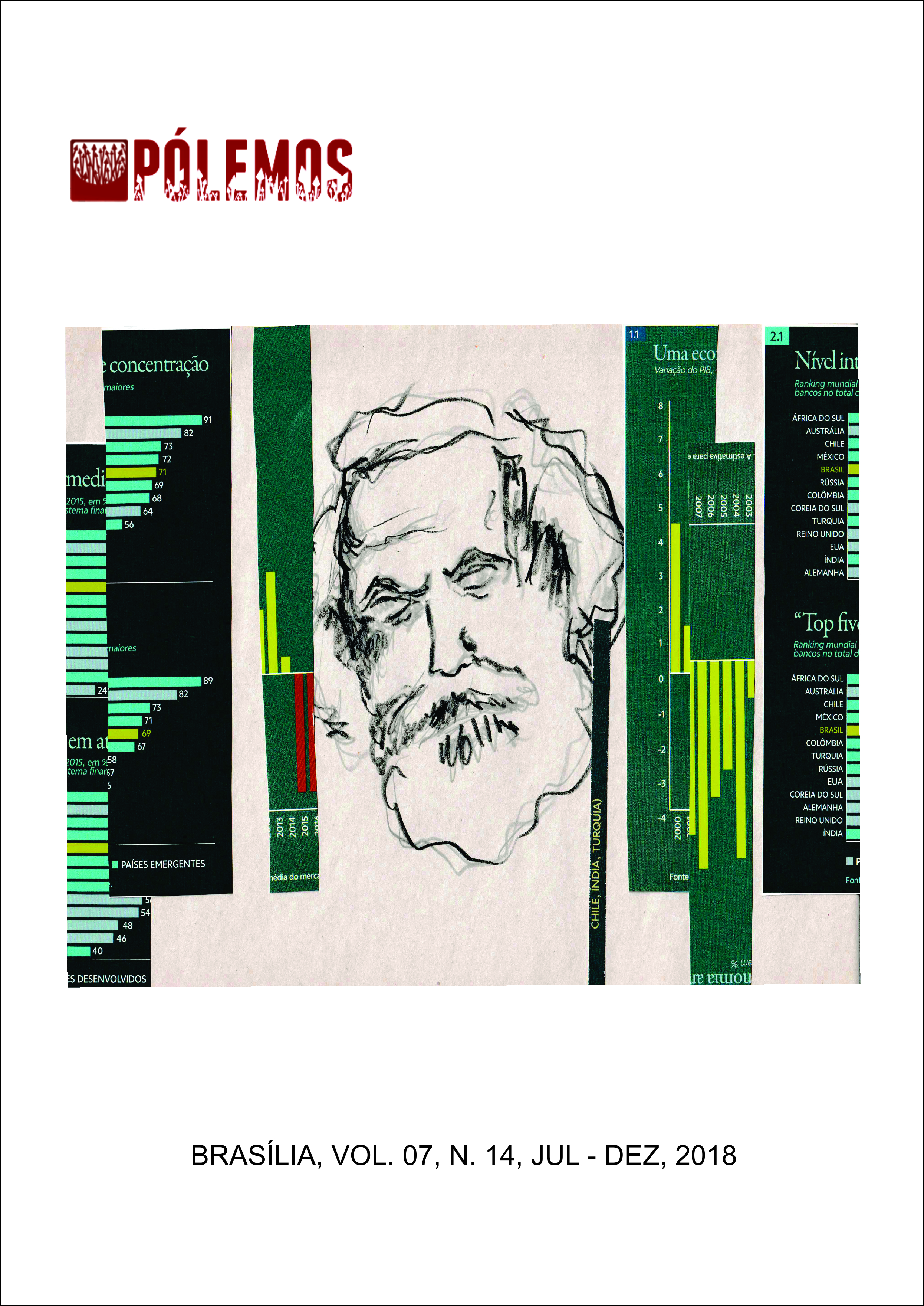THE MARXIST CONCEPT OF ALIENATION AND ITS IMPLICATIONS IN THE CONTEXT OF SOCIAL MEDIA AND THE OPINION FORMING OF THE USER
DOI:
https://doi.org/10.26512/pl.v7i14.23369Keywords:
Alienation. Social media. Flow of information. Opinion forming.Abstract
The present essay proposes to relate the notion of alienation constructed by Karl Marx to the phenomenon that influences millions of Internet users every day and the formation of their opinions. Humanity lives the so-called “Digital Era”, in which there is a great flow of information at great speed; in addition, people spend more and more time connected to the Internet through the most variable devices, using it to work, to study, to keep themselves informed, to buy and to sell, to have fun, among many other possibilities. In the context of immersion of Internet users in this parallel “world” of information, questions arise about what information reaches the users, through what criteria, and especially how this can influence their opinion forming.
Downloads
References
ARAÚJO, Lucas Vieira de. Adoção de algoritmos, NLG e inteligência artificial na imprensa brasileira em âmbito nacional e regional. Estudos em Jornalismo e Mídia, v. 14, n. 2, jul-dez, 2017 ”“ ISSNe 1984-6924. Disponível em:
<https://periodicos.ufsc.br/index.php/jornalismo/article/view/1984-6924.2017v14n2p175>. Acesso em 8 de fevereiro de 2019.
BARROS, José D’Assunção. O conceito de alienação no jovem Marx. Disponível em: <http://www.scielo.br/pdf/ts/v23n1/v23n1a11.pdf>. Acesso em 5 de julho de 2016.
BARROS, Thiago. Novo algoritmo do Facebook vai pôr no topo do feed conteúdo de qualidade. Techtudo. Disponível em:
<http://www.techtudo.com.br/noticias/noticia/2013/08/novo-algoritmo-do-facebook-vai-por-no-topo-do-feed-conteudo-de-qualidade.html>. Acesso em 5 de julho de 2016.
BENEVENUTO, Fabrício; ALMEIDA, Jussara M; SILVA, Altigran S. Explorando redes sociais online: da coleta e análise de grandes bases de dados à s aplicações. In: Simpósio Brasileiro de Redes de Computadores e Sistemas Distribuídos (SBRC). Campo Grande, Brasil. Maio de 2011. Disponível em:
<http://homepages.dcc.ufmg.br/~fabricio/download/mini-curso-sbrc11.pdf>. Acesso em 6 de julho de 2016.
MARX, Karl. Manuscritos econômico-filosóficos. Primeiro manuscrito. 1 edição. São Paulo. Boitempo Editorial, 2004. Disponível em:
<https://www.google.com/url?sa=t&rct=j&q=&esrc=s&source=web&cd=1&ved=2ahUKEwikvsyEz6zgAhUELLkGHd9WDYQFjAAegQIBhAC&url=https%3A%2F%2Fmarcosfabionuva.files.wordpress.com%2F2011%2F08%2Fmanuscritos-econc3b4micofilosc3b3ficos.pdf&usg=AOvVaw1UbFr3xigz9qf41e1qFt34>. Acesso em 8 de fevereiro de 2019.
MARX, Karl. O Capital. Volume I. Centelha ”“ Promoção do Livro, SARL, Coimbra, 1974. Disponível em:
<https://www.marxists.org/portugues/marx/1867/ocapital-v1/index.htm> Acesso em 8 de fevereiro de 2019.
Downloads
Published
Issue
Section
License
Copyright (c) 2018 PÓLEMOS ”“ Revista de Estudantes de Filosofia da Universidade de Brasília

This work is licensed under a Creative Commons Attribution-NonCommercial-NoDerivatives 4.0 International License.
Todos os trabalhos que forem aceitos para publicação, após o devido processo avaliativo, serão publicados sob uma licença Creative Commons, na modalidade Attribution-NonCommercial-NoDerivatives 4.0 International Public License (CC BY-NC-ND 4.0). Esta licença permite que qualquer pessoa copie e distribua a obra total e derivadas criadas a partir dela, desde que seja dado crédito (atribuição) ao autor / Ã autora / aos autores / às autoras.


